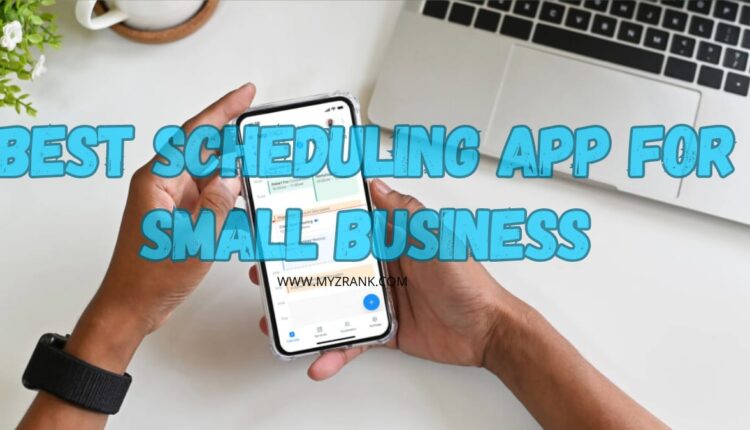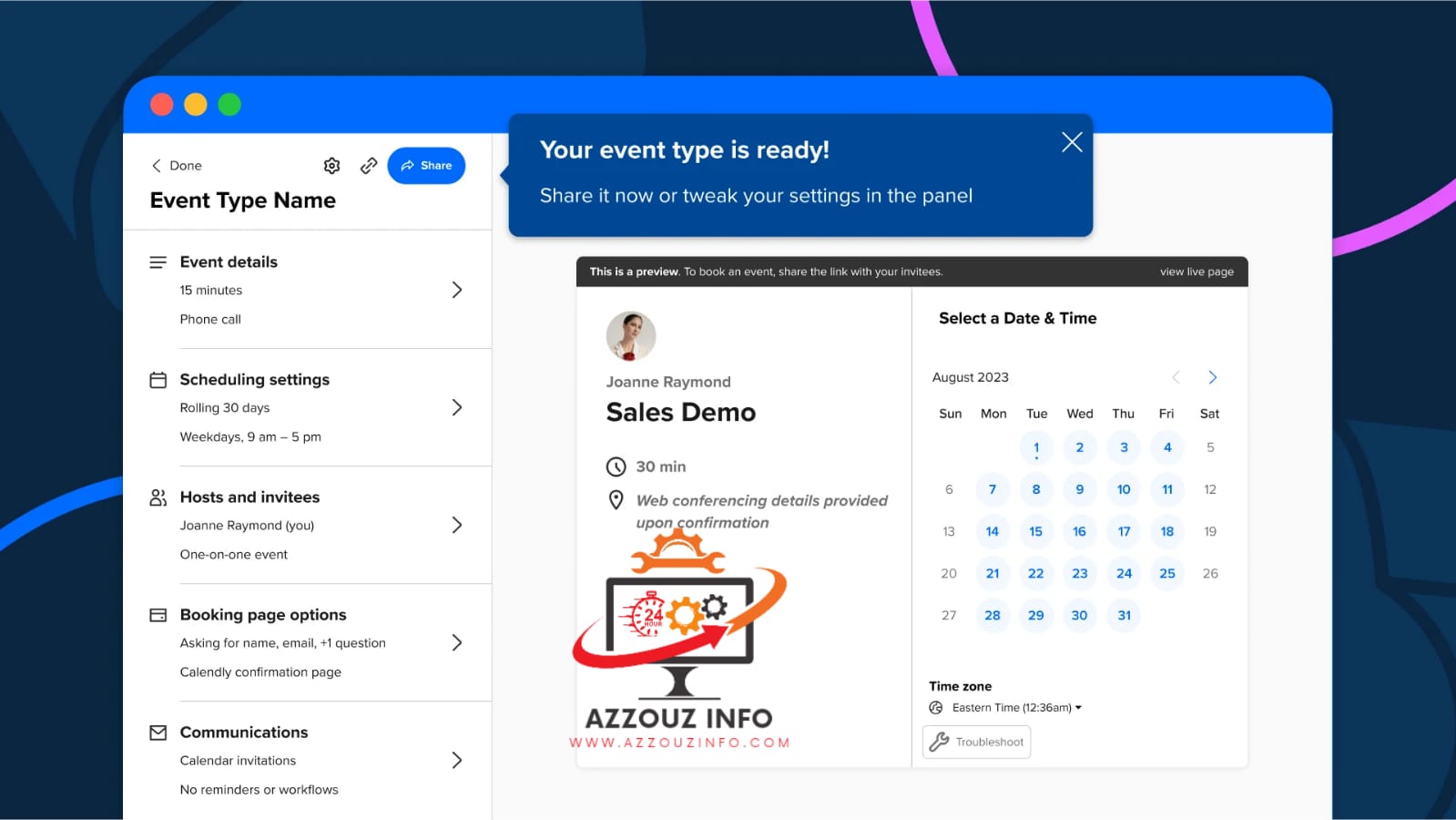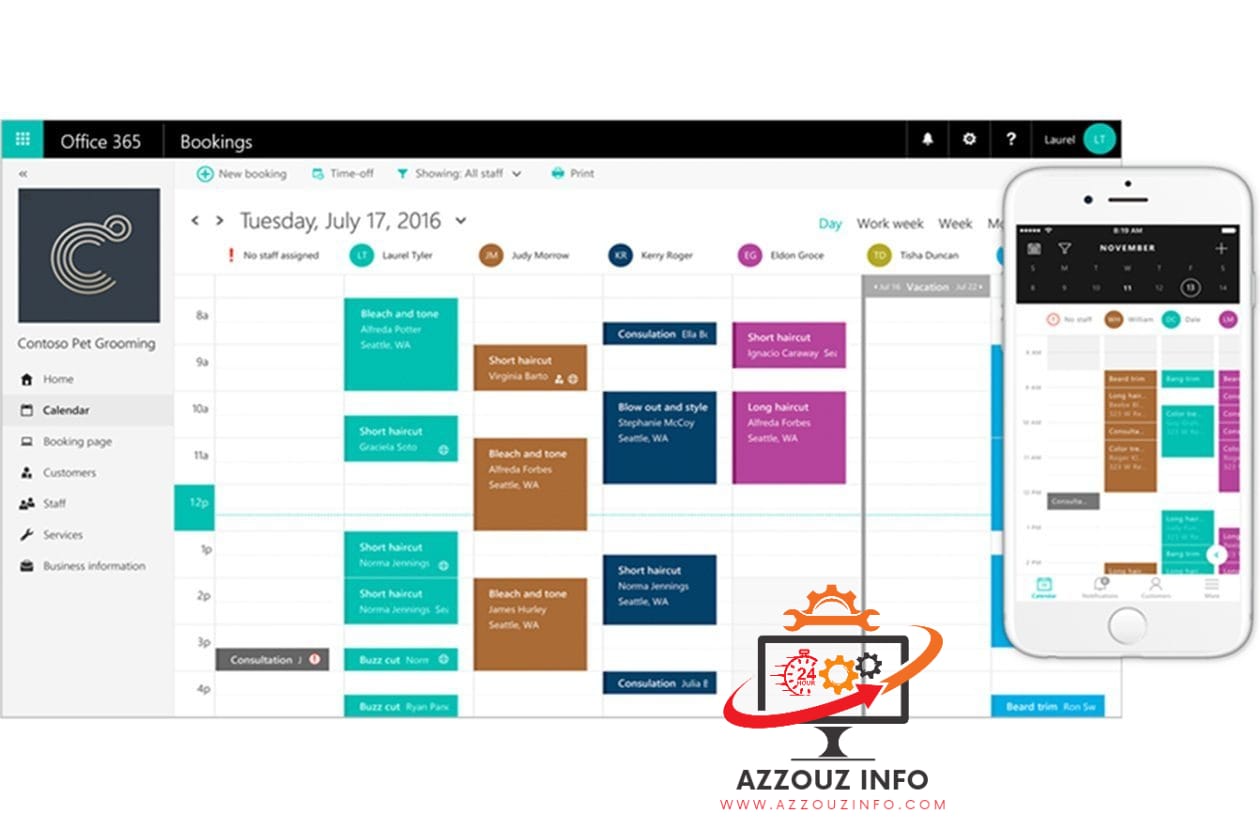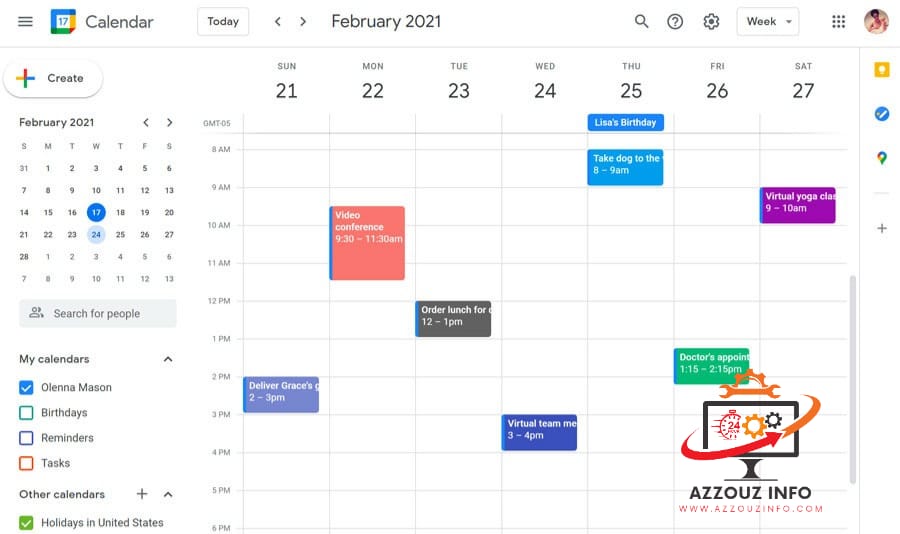Best scheduling app for small business
Best Scheduling App for Small Business: A Comprehensive Guide
Within the volatile globe of small business procedures, time management and keeping a timetable are fundamental to maximizing performance and outcomes. The best scheduling app can alter the manner a small business schedules and manages appointments, employee shifts, customer interactions, and time consumption across the panel. In this write-up, we introduce the best scheduling apps accessible to small businesses, focus on how they work, what features help them work, and how their modules fit your operations.
RELATED POST :
The Best Android TV Apps For 2024
Top 10 Free Apps To Download Songs On Android 2024
What is a Scheduling App?
Any software created to facilitate businesses and individuals in keeping appointment schedules, scheduling meetings and tasks, and scheduling employee shifts for optimal employment is recognized as a scheduling app. Common characteristics incorporate calendar and scheduling integration; automated reminders; online scheduling abilities; and customizable day-to-day and long-term scheduling.
Why Small Businesses Need a Scheduling App
For small businesses, a scheduling app is not just a tool; it’s a transformational asset that can lead to better customer service, improved employee management, and enhanced overall productivity.
Streamlining Appointment Booking
Automating the appointment booking process reduces errors and saves time, allowing business owners to focus on other critical aspects of their operation.
Enhancing Employee Management
Scheduling apps facilitate shift planning and management, making it easier to handle changes, track work hours, and maintain fairness in shift distributions.
Improving Customer Experience
With reliable scheduling software, customers can easily book appointments at their convenience, receive timely reminders, and feel more engaged with your business.
Best Scheduling Apps for Small Business in 2024
Choosing the right scheduling app can depend on numerous factors, including business size, industry, and specific needs. Here, we detail some of the top options available on the market.
| Feature | Calendly | Microsoft Bookings | Google Calendar | Acuity Scheduling |
|---|---|---|---|---|
| Integration | Extensive with 100+ options including CRM and video tools | Primarily Microsoft 365 apps | Strong with Google Workspace apps | Limited compared to Calendly, with 40 integrations |
| User Experience | Polished and user-friendly with mobile app | Less intuitive, no mobile app | Seamless with Google ecosystem | Customizable but with steeper learning curve |
| Group Scheduling | Advanced options like collective and round robin events | Basic group scheduling capabilities | Limited group functionalities | Advanced customization for group bookings |
| Pricing | Free plan; starts at $10/month for more features | Included in Microsoft 365 from $6/user/month | Free with Google Workspace | Starts at $16/month; no free plan |
| Best For | Teams needing robust scheduling and automation | Microsoft 365 users needing basic scheduling | Users seeking integration with Google services | Businesses needing high customization in scheduling |
1. Calendly
Features:
- Easy Integration: Calendly works seamlessly with Google, Outlook, Office 365, and iCloud calendar to avoid double-booking.
- Automated Scheduling: Sends automatic invitations and follow-ups to clients.
- Customization: Offers personalized booking links and the ability to set buffer times between meetings.
Rating: Calendly generally receives high ratings, typically around 4.5 out of 5 stars across various review platforms.
Pricing:
- Basic: Free with limited features.
- Premium: $8 per user/month.
- Pro: $12 per user/month
User Reviews: Users appreciate its user-friendly interface and the efficiency it brings to scheduling without the back-and-forth emails. Some users desire more customization options for the free version.
2. Acuity Scheduling
Features:
- Client Self-Service: Clients can view real-time availability and schedule their appointments.
- Customization: Fully customizable to align with your branding.
- Integrations: Integrates with Zoom, PayPal, Stripe, and more for a seamless experience.
Rating: Acuity Scheduling often earns around 4.8 out of 5 stars, making it highly favored for its robust functionality.
Pricing:
- Emerging: $15 per month.
- Growing: $25 per month.
- Powerhouse: $50 per month.
User Reviews: Business owners often praise its flexibility and the professional appearance it offers. Some report a learning curve when setting up more complex functionalities.
3. Microsoft Bookings
Features:
- Microsoft Integration: Works smoothly with Microsoft 365.
- Customizable Web Page: Allows businesses to have a dedicated booking page.
- Email and SMS Notifications: Keeps both the service provider and the customer updated.
Rating: Typically receives around 4.4 out of 5 stars. Users like its integration with Microsoft products but sometimes find the features limited compared to standalone apps.
Pricing: Included with Microsoft 365 Business Standard subscription at $12.50 user/month.
User Reviews: Users value its integration with the Microsoft ecosystem, though some wish for more customization options and features.
4. Google Workspace
Features:
- Integration: Seamless integration with other Google services.
- Sharing and Permissions: Easy to share calendars and set appointment slots.
- Accessibility: Accessible on any device through the Google account.
Rating: Google Calendar, part of Google Workspace, typically sees ratings around 4.7 out of 5 stars.
Pricing: Google Workspace plans start at:
- Business Starter: $6 per user/month.
- Business Standard: $12 per user/month.
- Business Plus: $18 per user/month.
User Reviews: Users love the simplicity and reliability of Google Calendar but often use it in conjunction with other scheduling apps for more complex needs.
5. Setmore
Features:
- Free Version: Supports up to 4 calendars and unlimited appointments.
- Alerts and Reminders: Automatic alerts and reminders to reduce no-shows.
- Payment Integration: Accept payments with Square or Stripe.
Rating: Setmore usually rates around 4.6 out of 5 stars, praised for its no-cost entry point and ease of use.
Pricing:
- Free: For up to 4 users.
- Premium: $9 per user/month.
- Pro: Custom pricing for larger teams.
User Reviews: Highly rated for its value and functionality in the free version. However, some users mention that the mobile app could be improved.
Choosing the Right Scheduling App
When selecting a scheduling app for your small business, consider the following factors to ensure it aligns with your operational needs and goals.
Integration Capabilities
A good scheduling app should seamlessly integrate with your existing software tools, such as email platforms, CRM systems, and accounting software.
User Interface and Experience
The app should have an intuitive and easy-to-use interface that doesn’t require a steep learning curve for you or your clients.
Customization and Flexibility
Look for apps that offer enough customization to match your specific business processes and client handling needs.
Cost Efficiency
Evaluate the cost relative to the features provided. Many apps offer basic services for free with premium features available at additional costs.
Security and Compliance
Ensure the app complies with relevant data protection regulations and offers robust security measures to protect your and your clients’ information.
Integrating a Scheduling App into Your Business
To effectively integrate a scheduling app into your small business operations, follow these steps:
Understanding Your Scheduling Needs
Identify what you need most from a scheduling app—whether it’s managing employee shifts, booking client appointments, or both.
Training and Onboarding
Once you choose an app, train your staff thoroughly on its use to ensure smooth adoption and utilization.
Monitoring and Adjustments
Regularly review the app’s impact on your business and make adjustments as necessary to continue meeting your scheduling needs effectively.
The Impact of Scheduling Apps on Small Business Productivity
By automating scheduling tasks, small businesses can significantly reduce administrative burdens, leading to higher productivity and more time to focus on growth and customer satisfaction.
Future Trends in Scheduling Technology
As technology advances, scheduling apps continue to evolve, offering more sophisticated features like AI-driven scheduling assistance, predictive analytics, and enhanced customization, which can further benefit small businesses.
Best Scheduling App for Small Business
Discussing the specific features that make an app the best choice for small businesses, including user-friendly interfaces, affordability, and powerful integrations.
FAQs
- What scheduling app is the most cost-effective for a small business?
Calendly, one of the most cost-effective scheduling apps for small businesses, has a robust free plan with nearly all the scheduling features a business needs. Another alternative is Microsoft Bookings, which is also budget-friendly if you are using Microsoft 365. (Automate your work today | Zapier) (Automate your work today | Zapier).
2. Which scheduling app can be customized the most?
Acuity Scheduling is the most customizable scheduling app, nearly every aspect of the scheduling experience, which allows businesses to personalize it as per their choice, including booking forms, scheduling pages, email reminders, and payment integrations of Acuity. (Automate your work today | Zapier).
3. Can a scheduling app be integrated with existing CRM software?
Yes, most modern scheduling apps contain CRM integration. Calendly, for instance, works well with popular CRM systems like Salesforce, and Acuity Scheduling can be connected to several CRMs. (Automate your work today | Zapier) (Automate your work today | Zapier).
4. Which scheduling app suits Groupon events or classes the best?
Calendly offers booking types such as round robin, collective, and group events, allowing businesses that require complex scheduling for multiple participants to have various options. (Automate your work today | Zapier) (Calendly.com).
5. Which scheduling apps work well with video conferencing apps?
Calendly offers excellent integration with various video conferencing platforms such as Zoom, Google Meet, and Microsoft Teams, ensuring that virtual meetings are convenient for all participants. (Automate your work today | Zapier).
6. How do scheduling apps protect user data?
The reputable scheduling apps conform to standard data protection laws and boast features like encrypted communications and GDPR compliance to shield the data securely. (meetergo: Turbo für deine Meetings ⚡️).
The trip into selecting the most appropriate scheduling app for a small business can be navigated through understanding several factors, including integration capabilities, ease of use, pricing structure, as well as available functions such as group scheduling and customization.
Calendly is identified based on its vast integration opportunities and a sound set of scheduling functions covering both individual and teamwork needs.
Microsoft Bookings offers a relatively low-cost solution but only for companies strongly tied with Microsoft 365 functionality.
Finally, Google Calendar does not require any additional investments, and as part of Google Workspace, is a good option for those businesses that need only a simple scheduling.
Nevertheless, Acuity Scheduling, in spite of the lack of the free plan, is generally recommended as a detailed control over the scheduling process may be crucial for many operations.
Each of these tools has its implementation strengths and fits any type of small business depending on other technological, operational and commercial environments.
The choice should be made considering both current operations and possible future growth path. The right tools can help enhance current efficiencies, keep stakeholders more satisfied and allow for easier success.





